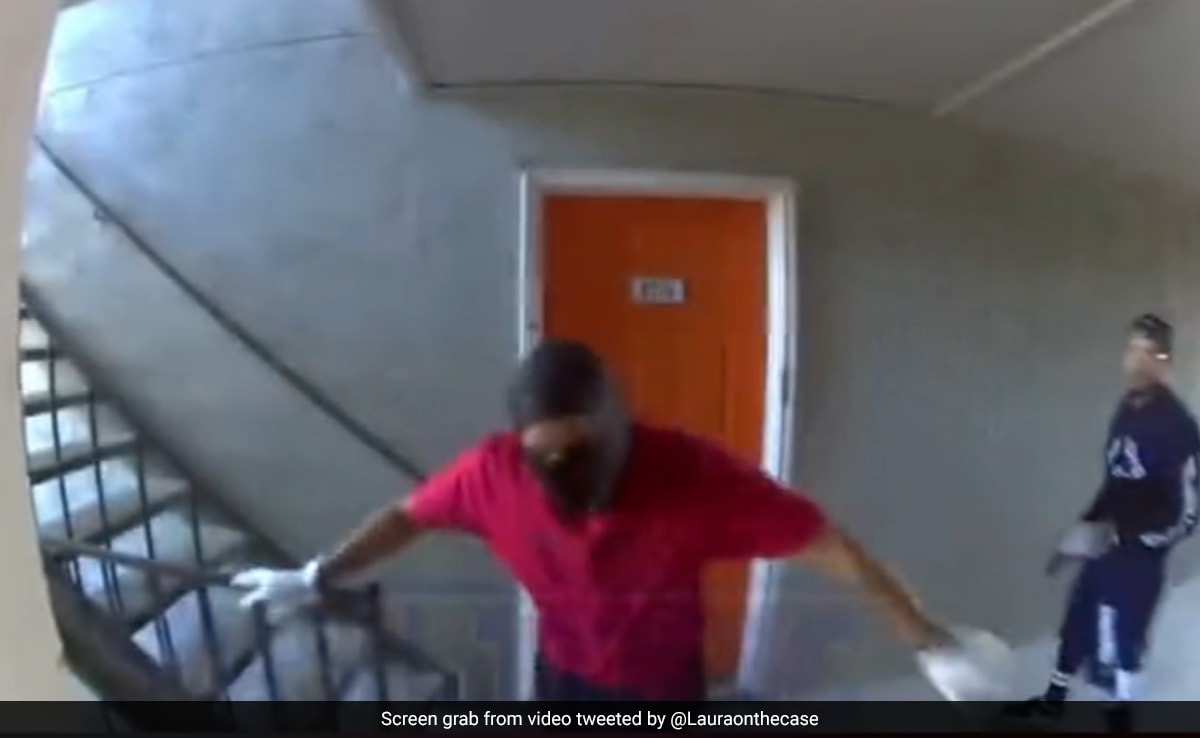Armenian lawmakers attend the session of the National Assembly of the Republic of Armenia in Yerevan, Armenia, Tuesday, Oct. 3, 2023.
| Photo Credit: AP
Armenia’s Parliament voted on Tuesday to join the International Criminal Court, a move that further strains the country’s ties with its old ally Russia after the court issued an arrest warrant for President Vladimir Putin over events in Ukraine.
Moscow last month called Yerevan’s effort to join the ICC an “unfriendly step,” and the Russian Foreign Ministry summoned Armenia’s ambassador.
Countries that have signed and ratified the Rome Statute that created the ICC are bound to arrest Mr. Putin, who was indicted for war crimes connected to the deportation of children from Ukraine, if he sets foot on their soil.
Armenia later sought to assure Russia that Mr. Putin would not be arrested if he entered the country.
Still, Kremlin spokesman Dmitry Peskov called on Tuesday’s decision “incorrect,” saying it will raise “additional questions” in Moscow, even though Armenia is “our ally, a friendly state, our partner, and a lot unites us with the brotherly Armenian people.” Asked if Mr. Putin would have to refrain from travelling to Armenia, he added: “Of course, we wouldn’t want the President to have to ever, for whatever reason, refuse a visit to Armenia.” A diplomatic solution is needed and will be discussed with Yerevan, he said.
Armenian officials have argued the move has nothing to do with Russia and was prompted by what they call Azerbaijan’s aggression against the country.
Lawmakers voted to ratify the Rome Statute by a vote of 60-22. The decision after that is to be submitted to Armenia’s president, who must prepare a ratification document, which is then deposited with the UN secretary-general.
The decision comes into force 60 days after the ratification, according to Armenian lawmakers.
Armenia’s relations with Russia have frayed significantly in recent years.
In 2020, Moscow brokered a deal that ended a six-week war between Armenia and Azerbaijan. It mandated that Yerevan cede to Baku large swaths of territory in and around Nagorno-Karabakh, a part of Azerbaijan with a predominantly Armenian population.
Russia then sent some 2,000 peacekeepers to the tumultuous region and Armenia has accused the troops of failing to prevent recent hostilities by Azerbaijan that led to Baku taking full control of the region.
The Kremlin, in turn, has accused Armenian Prime Minister Nikol Pashinyan of precipitating the fall of Nagorno-Karabakh by acknowledging Azerbaijan’s sovereignty over the region.
Moscow also blames Yerevan for damaging ties with Russia by embracing the West, including hosting U.S. troops for joint military drills.
It remains unclear whether Pashinyan might take Armenia out of the Moscow-dominated Collective Security Treaty Organisation, a group of several former Soviet nations, and other Russia-led alliances.
Armenia also hosts a Russian military base and Russian border guards help patrol Armenia’s frontier with Turkey.
Armenia had started the process of joining the ICC more than 20 years ago, but in 2004 its Constitutional Court ruled that the Rome Statute contradicted the country’s constitution at the time, putting the process on pause.
The Constitution has been amended twice since then. In March, the Constitutional Court ruled that the obligations for signatories outlined by the Rome Statute are in line with the existing constitution.
Armenia’s envoy on international legal matters, Yegishe Kirakosyan, said Yerevan decided to resume the process of joining the ICC because of Baku’s alleged aggression against Armenia. Armenian officials last year accused Azerbaijan of killing a number of Armenian prisoners of war, an allegation Baku had promised to investigate.
Yerevan wants the ICC’s jurisdiction to take force starting from May 10, 2021, but under the court’s founding treaty, Armenia would likely have to make a separate declaration to that effect.
Kirakosyan said last week that Armenia has proposed to Moscow a bilateral agreement to assuage Russia’s concerns about Putin. The text was presented to Russia in April, he said, and Armenian officials have been waiting for a response.
Kirakosyan also said an arrest of Putin is not a possibility even after Armenia joins the ICC, since “leaders have immunity.” Asked about the agreement that Yerevan proposed, Peskov said Tuesday it is “merely an idea of the Armenian side,” that still needs to be worked out. “Serious conversations on this topic are ahead. We need to for some kind of a diplomatic solution in this regard,” he said.












